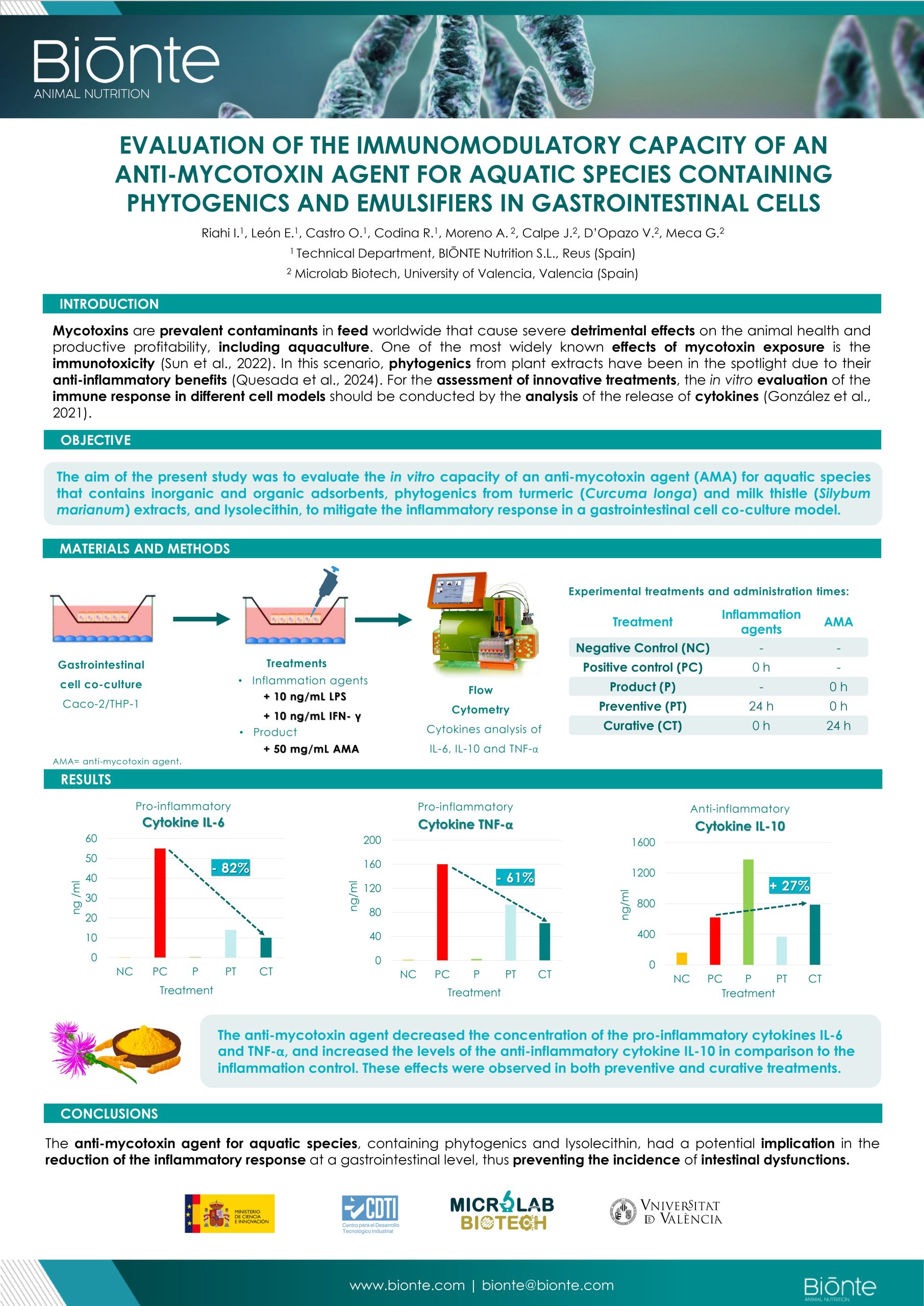INTRODUCTION
Mycotoxins are prevalent contaminants in feed worldwide that cause severe detrimental effects on the animal health and productive profitability, including aquaculture. One of the most widely known effects of mycotoxin exposure is the immunotoxicity (Sun et al., 2022). In this scenario, phytogenics from plant extracts have been in the spotlight due to their anti-inflammatory benefits (Quesada et al., 2024). For the assessment of innovative treatments, the in vitro evaluation of the immune response in different cell models should be conducted by the analysis of the release of cytokines (González et al., 2021).
OBJECTIVE
The aim of the present study was to evaluate the in vitro capacity of an anti-mycotoxin agent (AMA) for aquatic species that contains inorganic and organic adsorbents, phytogenics from turmeric (Curcuma longa) and milk thistle (Silybum marianum) extracts, and lysolecithin, to mitigate the inflammatory response in a gastrointestinal cell co-culture model.
MATERIALS AND METHODS

RESULTS

The anti-mycotoxin agent decreased the concentration of the pro-inflammatory cytokines IL-6 and TNF-α, and increased the levels of the anti-inflammatory cytokine IL-10 in comparison to the inflammation control. These effects were observed in both preventive and curative treatments.
CONCLUSIONS
The anti-mycotoxin agent for aquatic species, containing phytogenics and lysolecithin, had a potential implication in the reduction of the inflammatory response at a gastrointestinal level, thus preventing the incidence of intestinal dysfunctions.




